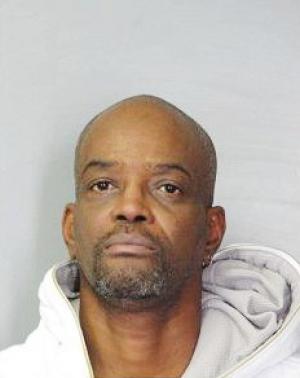Doctor and family testify for Leslie Small
Members of Leslie Small's family took the stand April 12 to testify on behalf of the convicted murderer. Their testimony, in the penalty phase of Small's trial, showed a kinder side of the defendant.
Small was found guilty of killing June McCarson, 78, by stabbing her to death with a pair of scissors. McCarson was stabbed numerous times Nov. 11, 2009, in her home in Lewes.
Sitting at the defense table, Small smiled as his younger brother, Kevin, took the stand in the small Georgetown courtroom. Kevin, who manages funeral homes in New York and New Jersey, said he and Small grew up playing music together. Photographs of family gatherings presented to the jury showed Kevin playing a drum set and Small playing bass guitar.
Kevin told jurors the brothers had a fairly normal upbringing in Lakewood, N.J., but the death of their older brother, Nathan, greatly affected Leslie. "They were very close," Kevin said. He said Nathaniel was killed in 1987, the victim of a robbery. Small was incarcerated at the time of his brother's death and could not attend the funeral, Kevin said.
Small's wife, Celeste, who also testified earlier during the trial process, told jurors about her decades-long relationship with Small. Celeste said she met Small and his brother, Nathan, whom she called "Ponchee," at a Christian youth conference in Lewes when they were all in their early teens. Celeste, who lived in Delaware, kept in touch with Nathan, and later, with Small.
Celeste began writing letters and having phone conversations with Small in 1987, the same year Nathan was killed. When Small was released in 2002, Celeste said she picked him up from Trenton State Prison in New Jersey and drove him home to his family, where she met his mother and father for the first time. Later in 2002, Small moved to Delaware to be with Celeste.
Without skipping a beat, Celeste recalled the couple's wedding day, June 23, 2003. Photographs of Celeste and Small walking down the aisle, smiling, brought tears to Celeste's eyes, but she smiled, as did Small, sitting across the courtroom.
"I believe that God puts people in your life. No matter how bad or how good, that person is in your life for a reason," Celeste said. "He was put in my life, not to make me a better person, but to make me a stronger person." Celeste said she continues to love Small unconditionally. Watching his wife testify, Small also began to cry.
Celeste said she has also cried for her husband's victim. One month after the murder, Celeste read McCarson's obituary and discovered McCarson's favorite holiday was Christmas. On Dec. 25, 2009, Celeste said, she bought a gold candleholder and lit a candle for McCarson. She said she will continue to light a candle for Small's victim every Christmas.
Celeste testified she knew Small had HIV, and his condition caused him mental anguish. "He couldn't come to grips with it," she said.
Further testimony from Small's physician illustrated Small's poor mental and physical health. Lawrence McDonald, medical director at Sussex Correctional Institution, said he removed Small from the Key program, a substance-abuse treatment program for inmates, because of the physical demands of the program. Small testified earlier in the trial he struggles with an addiction to crack cocaine.
McDonald said medications Small was taking to control his HIV and hepatitis C caused exhaustion and other medical problems such as poor kidney function and peripheral neuropathy, a condition where damaged nerves in Small's feet cause him extreme pain. McDonald said medications to control HIV can damage major organs. Treatments to control hepatitis C, such as chemotherapy, are also used to treat cancer patients.
During cross-examination, prosecutor David Hume asked McDonald if Small ever showed signs of dementia or delirium resulting from the prescriptions he was taking. McDonald said Small showed no signs of dementia or delirium.
Susan Wilgus, a registered nurse, showed the jury Small's private medical records during her testimony. Besides his physical ailments, Small also suffered from general anxiety and major depression, Wilgus said.
In rebuttal, state’s witness Stephen Mechanick, a psychiatrist, refuted conclusions made by medical experts who testified earlier for the defense. Psychiatrist Daniel Smithpeter of Salisbury, Md., testified previously that Small’s HIV diagnosis in 1999 is likely affecting his central nervous system functions. An MRI scan showed brain abnormalities common in people with HIV, he said. Smithpeter said the effects of HIV on Small’s brain function could have caused delirium at the time of the murder.
Mechanick, who was observing in the gallery when Smithpeter testified, said April 13 that he performed a psychological evaluation of Small. Mechanick concluded HIV has not affected Small’s brain or caused delirium. “The available evidence does not support a conclusion that there’s central nervous system or brain involvement,” Mechanick said. Abnormalities in Small’s MRI scan could have resulted from a number of things, including drug use, he said. Mechanick said, in his opinion, Small does not have a cognitive disorder.
Closing arguments will begin at 9 a.m., Thursday, April 14, in Sussex County Superior Courthouse. Jury deliberation will follow closing statements.















































